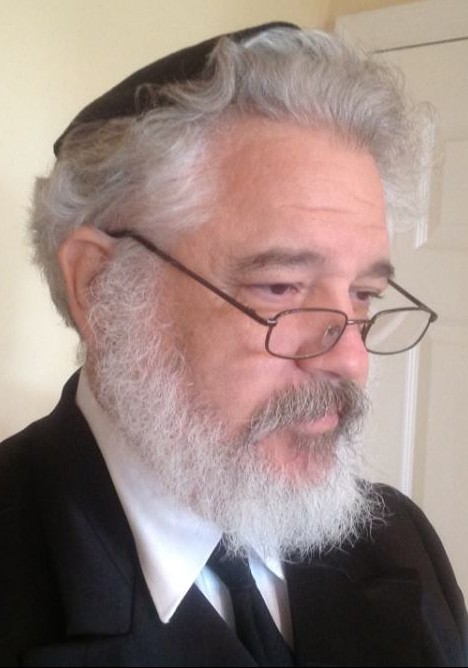PARSHA SHEMINI
Rabbi Bernstein
| Author | |
| Date Added |
Leviticus 9
|
1And it was on the eighth day, that Moses summoned Aaron and his sons and the elders of Israel. |
|
אוַֽיְהִי֙ בַּיּ֣וֹם הַשְּׁמִינִ֔י קָרָ֣א משֶׁ֔ה לְאַֽהֲרֹ֖ן וּלְבָנָ֑יו וּלְזִקְנֵ֖י יִשְׂרָאֵֽל: |
|
2And he said to Aaron, "Take for yourself a bull calf as a sin offering, and a ram as a burnt offering, [both] unblemished, and bring [them] near before the Lord. |
|
בוַיֹּ֣אמֶר אֶל־אַֽהֲרֹ֗ן קַח־לְ֠ךָ֠ עֵ֣גֶל בֶּן־בָּקָ֧ר לְחַטָּ֛את וְאַ֥יִל לְעֹלָ֖ה תְּמִימִ֑ם וְהַקְרֵ֖ב לִפְנֵ֥י יְהֹוָֽה: |
|
3And to the children of Israel, you shall speak, saying, 'Take a he goat as a sin offering; and a calf and a lamb, [both] in their first year and [both] unblemished, as a burnt offering, |
|
גוְאֶל־בְּנֵ֥י יִשְׂרָאֵ֖ל תְּדַבֵּ֣ר לֵאמֹ֑ר קְח֤וּ שְׂעִֽיר־עִזִּים֙ לְחַטָּ֔את וְעֵ֨גֶל וָכֶ֧בֶשׂ בְּנֵֽי־שָׁנָ֛ה תְּמִימִ֖ם לְעֹלָֽה: |
|
4and an ox and a ram as peace offerings, to slaughter before the Lord, and a meal offering mixed with oil, for today the Lord is appearing to you.' " |
|
דוְשׁ֨וֹר וָאַ֜יִל לִשְׁלָמִ֗ים לִזְבֹּ֨חַ֙ לִפְנֵ֣י יְהֹוָ֔ה וּמִנְחָ֖ה בְּלוּלָ֣ה בַשָּׁ֑מֶן כִּ֣י הַיּ֔וֹם יְהֹוָ֖ה נִרְאָ֥ה אֲלֵיכֶֽם: |
|
5And they took what Moses had commanded, to the front of the Tent of Meeting, and the entire community approached and stood before the Lord. |
|
הוַיִּקְח֗וּ אֵ֚ת אֲשֶׁ֣ר צִוָּ֣ה משֶׁ֔ה אֶל־פְּנֵ֖י אֹ֣הֶל מוֹעֵ֑ד וַיִּקְרְבוּ֙ כָּל־הָ֣עֵדָ֔ה וַיַּֽעַמְד֖וּ לִפְנֵ֥י יְהֹוָֽה: |
This week’s Torah portion briefly continues the Torah’s historical narrative, in regard to the Kohanim. Leviticus 9 repeats the ritual of the Miluim, the installment of the priesthood. This ceremony, which is also given in Exodus 29, inaugurates the sacrificial system of the Mishkan. It is on this 8th day of the ceremony that the first Tamid offering, the daily sacrifice, is brought before Hashem. The sacrifice would be brought continuously from this day until the siege of Jerusalem by Nebuchadnezzar. The installment of the Kohanim, and the inauguration of the sacrificial system would define Israel’s relationship with Hashem forever.
The Torah does not often repeat itself. We see many repetitions in Deuteronomy, however, Deuteronomy is Moses’s great message and is told to us, from his perspective. This repetition of the Miluim, is quite different. This is Hashem repeating the ceremony to us. This repetition is something to which we need to pay attention, Hashem does not give us the words of Torah casually.
The Miluim establishes the Kohanim, as one of the 3 “seats” of leadership within the house of Israel, the seat of Moses (the prophet,) the seat of David (the King,) and the seat of Aaron (the Kohayn.) The structure of leadership, with its checks and balances, would both serve and define Israel throughout history. The role of the Kahuna, the priesthood as the designated representatives of the people before Hashem, is initiated with the ceremony of the Miluim. As with the other seats of leadership, historically the priesthood is riddled with human frailty and misjudgment. Nevertheless, the Kahuna is one of the most important aspects of Israel’s relationship with Hashem. We look forward to the rebuilding of the Temple and the renewing of the duties of the Kahuna, and its relationship with Messiah Yeshua. And it be soon, and in our days. Shabbat shalom.
Sat, November 1 2025
10 Cheshvan 5786
Today's Calendar
| Shacharit : 11:00am |
| Havdalah : 7:35pm |
This week's Torah portion is Parshat Lech Lecha
| Shabbat, Nov 1 |
Candle Lighting
| Shabbat, Nov 1, 6:27pm |
Havdalah
| Motzei Shabbat, Nov 1, 7:35pm |
SERVICES & STUDIES
Adult Education Class - Shabbat 9:45am
Shabbat Service - 11:15am
Schul Events
Community Events

Rabbi Doctor Steven Bernstein zt"l
Members & Guests
We are so very grateful to Villas Wesleyan Church for opening their doors to us so we can continue having services while looking for our own building.
We need to be excellent guests and this takes every one of us to accomplish, so here are some gentle reminders:
We will have kiddish lunch / nosh as usual – watch for posted signs for where to set food
Bring your own coffee
Nursery facilities are available plus there’s a changing table in the lady’s restroom – whoever uses them is responsible for pick up, disinfecting, and removing trash
Everyone needs to clean up after themselves and their children
We need helpers for break down (move furniture back into position, wipe down surfaces, take out trash)
MANY HANDS MAKE LIGHT WORK! THANK YOU
- Home |
- Map & Address |
- Donate
Privacy Settings | Privacy Policy | Member Terms
©2025 All rights reserved. Find out more about ShulCloud
